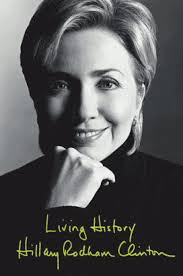“Don’t vote for Hillary Clinton”
The obituary for Larry Darrell Upright asks mourners not to vote for Hillary Clinton. How important is candidate popularity to the outcome of a presidential election?
An ordinary man with an non-ordinary request gained celebrity last week. Larry Darrell Upright died last week making an unusual request in his obituary. One can’t help but think how the anti- Hillary people will go to any lengths to prevent her election.

The North Carolina resident’s obituary closes with this line:
“In lieu of flowers, memorials may be sent to Shriners Hospital for Children …. Also, the family respectfully asks that you do not vote for Hillary Clinton in 2016. R.I.P. Grandaddy.”
In the funeral home’s online guest book for Mr. Upright’s memorial service, reports WBTV Channel 12 in Richmond, Va., the following comments were left:
“Our deepest sympathy to the entire family. We promise not to vote for Hillary,” one mourner wrote.
“God Bless,” wrote another. “We would not vote for Hillary if she was the only one running.”
Of course, the “Stop Hillary” campaigners love Mr. Upright’s – or his family’s – last political wish. And although his request was to a few this small effort to influence the outcome of the 2016 election raises an important political point: How relevant are “unfavorable” ratings to a presidential campaign?
A CNN poll released Monday shows that Hillary Clinton’s unfavorable ratings are on the rise, now at 44 percent – the highest since 2008 – and her favorable rating is at its lowest level since 2008. The poll indicates that her “honest and trustworthy” rating is down from 56 to 50 percent.
The Washington Post’s, “the Fix” blog notes that is an expected trend.
This sort of reporting is pushed by this blog predicting that Clinton’s numbers would continue to fall off their secretary of state highs. It was unsustainable for a politician who was so polarizing as a first lady and senator to continue to be so popular as she re-entered the political arena. Half the country was bound to love her, and half was bound to despise her.
On the contrary a Washington Post-ABC News poll in late March indicates that Hillary Clinton is the only 2016 presidential candidate – declared or undeclared – with a net favorable rating.
All six likely Republican candidates identified in the poll (Former Gov. Jeb Bush, Sen. Ted Cruz, Sen. Marco Rubio, Sen. Rand Paul, Gov. Scott Walker, Gov. Chris Christie) had higher unfavorable than they do favorable ratings.
Whe question to ask is how unusual is that? In the scheme of things it’s worse than 2008. The Washington Post notes a similar April 2008 Gallup poll showed almost all the candidates in a net favorable position.
As a constituency we must as does that really matter? Is popularity a key indicator of who will win a US presidential election? Maybe. The answer is yes but not this early in the campaign, according to the blogger Nate Silver.
Silver observed that as early as early as April of 2012, Mitt Romney’s favorable-unfavorable gap was a negative 10 percent. According to Silver more American voters viewed him unfavorably than favorably. This prompted him to look at previous popularity ratings going back to the 1980 presidential election. He concluded that early in the campaign, the favorability ratings were not good indicators of presidential election results. However near the end of the race, the correlation improved. Chicagoans just witnessed this in the recent heated mayoral race.
If we look at favorability ratings in the late stages of a presidential race, however – as measured by an average of New York Times/CBS News polls conducted from September of the election year until the election date – we observe a much stronger relationship. Although there is no data on this for 1976, the candidate with the stronger net-favorable rating in the late stages has won every election since 1980, and there has been an almost-perfect correspondence between the margin of the favorability gap and his margin of victory or defeat in the popular vote.
Still Silver questions the accuracy of this alone as an indicator, saying, “a sample of just 8 elections since 1980 is not remotely adequate for hypothesis-testing.”
What’s your take on all this? Do you identify your candidate early on, do you research your candidate or get 60 second sound bites and let it influence your vote?
